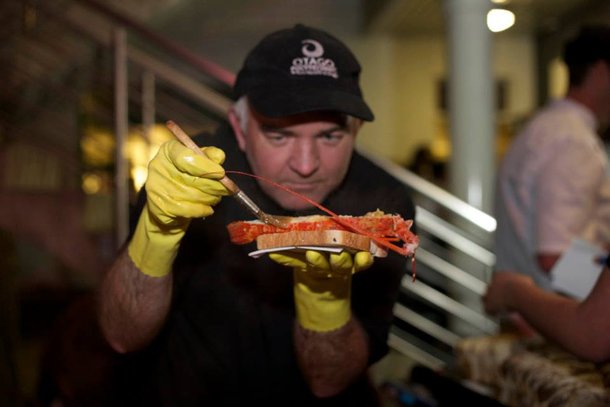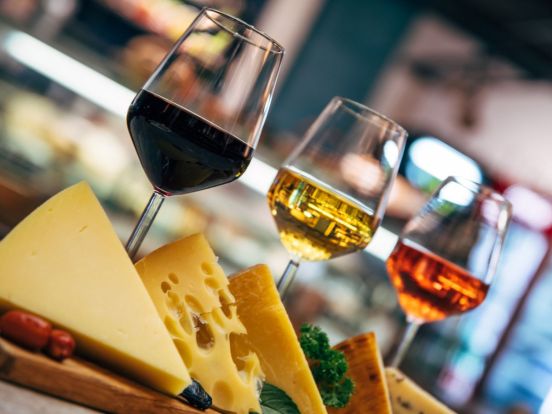Attendees at the International Food Design Experience learned that Food Design is more than creating dishes that look good on a plate.
More than 100 food industry professionals from nine countries attended the three-day conference introducing the Food Design Institute at Otago Polytechnic. The Food Design Institute is the only place in the world students can study for a Bachelor of Culinary Arts, with the first intake in the three-year degree course graduating this December.
One of four international keynote speakers, food design lecturer and practitioner Emilie Baltz from New York, opened the conference explaining that food design is anything that changes our relationship with food.
While that may be creating dishes that stimulate the visual and taste senses, it can also be using a structured design process to help reduce and eliminate food waste. Or it could be finding ways to help the western world accept and eat alternative types of protein such as insects.
London food designer of Edible Stories Chloe Morris, Elisabet Skylare and Nikolaj Danielsen of the New Nordic Food Movement and award-winning New Zealand chefs Michael Meredith, Gianpaolo Grazioli and Giulio Sturla were also keynote speakers.
The conference concluded with a Gala Dinner drawing upon the skills of Culinary Arts students who created an experience which told the tale of the settling of Dunedin by Maori through to the modern day with four different food experiences.
Three of New Zealand’s leading chefs collaborate for the keynote address at the International Food Design Experience.
Taking inspiration from your surroundings is key to remaining creative, according to three of New Zealand’s leading chefs who gave the keynote address at the International Food Design Conference held in Dunedin recently.
In a show of collegiality, Michael Meredith of Meredith’s (Auckland), Guilio Sturla of Roots (Lyttelton) and Gianpaolo Grazioli of Giapo (Auckland) shared the stage for the presentation, all striving to explain what drives their creative process.
Grazioli said he was influenced by everything including flowers, trees, great dishes from other chefs, and images on Instagram and Twitter. Essentially, he said his creativity and ideas come from everywhere.
Sturla also called upon nature for his inspiration, which is particularly driven by the seasons and what he finds foraging in his own Lyttelton garden and in the local surrounds. Meredith agreed nature was important but said that there was no single recipe for where creativity and inspiration come from.
For example at Meredith’s, the kitchen brigade found inspiration on Tuesdays when they drew an ingredient out of a hat and were forced to find ways to use it in their menu.
While the trio agreed that they needed to sometimes ignore reviews and criticism, all concluded that receiving praise did push them to continue their creative pursuits.
According to Grazioli: “hearing someone say well done is the spring you need to keep working….after all, everyone just wants to be loved”.
Meredith admitted that in the competitive Auckland restaurant scene exposure is important but added that sometimes you have to let criticism bounce off. Otherwise, he says you would end up questioning everything you do and that would negatively impact creativity.
Even Sturla who claimed he wasn’t influenced by reviews admitted that recognition could be a positive thing, saying the focus that Roots had received was good for the restaurant and also the local community.
- Elisabet Skylare
- Dessert
- Dessert lab
- Dessert liquid nitro
- Crayfish
- dessert
- entree
- hands
- Lamb popicles
- Giapo during keynote
- Giulio Sturla
- Michael Meredith
- Giapo and Michael
- Emilie Baltz
























